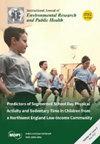Beyond Numbers: Decoding the Gendered Tapestry of Non-Communicable Diseases in India
3区 综合性期刊
Q1 Medicine
International Journal of Environmental Research and Public Health
Pub Date : 2024-09-18
DOI:10.3390/ijerph21091224
引用次数: 0
Abstract
Introduction: Non-communicable diseases (NCDs) represent a major global health challenge, particularly in low- and middle-income countries like India, with significant gender disparities in mortality and disease burden. This study aims to investigate these disparities, using data from national health surveys, to inform gender-specific public health strategies and align with global health goals. Methodology: The study uses data from the Longitudinal Aging Study in India (LASI) and National Family Health Surveys (NFHS-4 and NFHS-5). Result: The results from the Longitudinal Ageing Study in India (LASI) and National Family Health Surveys (NFHS-4 and NFHS-5) indicate significant demographic and health-related variations among 65,562 participants. Key findings show gender disparities in lifestyle habits such as alcohol and tobacco use, and differences in health outcomes across age, education, and socioeconomic status. Notably, an increase in NCD prevalence, particularly hypertension and diabetes, was observed from NFHS-4 to NFHS-5, highlighting evolving health challenges in India. Conclusions: The study emphasizes the importance of gender in the prevalence and management of non-communicable diseases (NCDs) in India, advocating for public health strategies that address gender differences, socio-economic factors, and urban-rural disparities to achieve health equity.数字之外:解码印度非传染性疾病的性别织锦
导言:非传染性疾病 (NCD) 是一项重大的全球健康挑战,尤其是在印度这样的中低收入国家,在死亡率和疾病负担方面存在显著的性别差异。本研究旨在利用国家健康调查数据调查这些差异,为针对不同性别的公共卫生战略提供信息,并与全球健康目标保持一致。研究方法:研究使用了印度老龄化纵向研究(LASI)和全国家庭健康调查(NFHS-4 和 NFHS-5)的数据。结果:印度老龄化纵向研究(LASI)和全国家庭健康调查(NFHS-4 和 NFHS-5)的结果表明,65,562 名参与者在人口和健康方面存在显著差异。主要调查结果显示,在饮酒和吸烟等生活习惯方面存在性别差异,不同年龄、教育程度和社会经济地位的人在健康结果方面也存在差异。值得注意的是,从 NFHS-4 到 NFHS-5,非传染性疾病(尤其是高血压和糖尿病)的发病率有所上升,凸显了印度不断变化的健康挑战。结论:该研究强调了性别在印度非传染性疾病(NCDs)的流行和管理中的重要性,倡导采取公共卫生战略,解决性别差异、社会经济因素和城乡差异问题,以实现健康公平。
本文章由计算机程序翻译,如有差异,请以英文原文为准。
求助全文
约1分钟内获得全文
求助全文
来源期刊

International Journal of Environmental Research and Public Health
Medicine-Public Health, Environmental and Occupational Health
CiteScore
7.30
自引率
0.00%
发文量
14422
审稿时长
1 months
期刊介绍:
International Journal of Environmental Research and Public Health (IJERPH) (ISSN 1660-4601) is a peer-reviewed scientific journal that publishes original articles, critical reviews, research notes, and short communications in the interdisciplinary area of environmental health sciences and public health. It links several scientific disciplines including biology, biochemistry, biotechnology, cellular and molecular biology, chemistry, computer science, ecology, engineering, epidemiology, genetics, immunology, microbiology, oncology, pathology, pharmacology, and toxicology, in an integrated fashion, to address critical issues related to environmental quality and public health. Therefore, IJERPH focuses on the publication of scientific and technical information on the impacts of natural phenomena and anthropogenic factors on the quality of our environment, the interrelationships between environmental health and the quality of life, as well as the socio-cultural, political, economic, and legal considerations related to environmental stewardship and public health.
The 2018 IJERPH Outstanding Reviewer Award has been launched! This award acknowledge those who have generously dedicated their time to review manuscripts submitted to IJERPH. See full details at http://www.mdpi.com/journal/ijerph/awards.
 求助内容:
求助内容: 应助结果提醒方式:
应助结果提醒方式:


